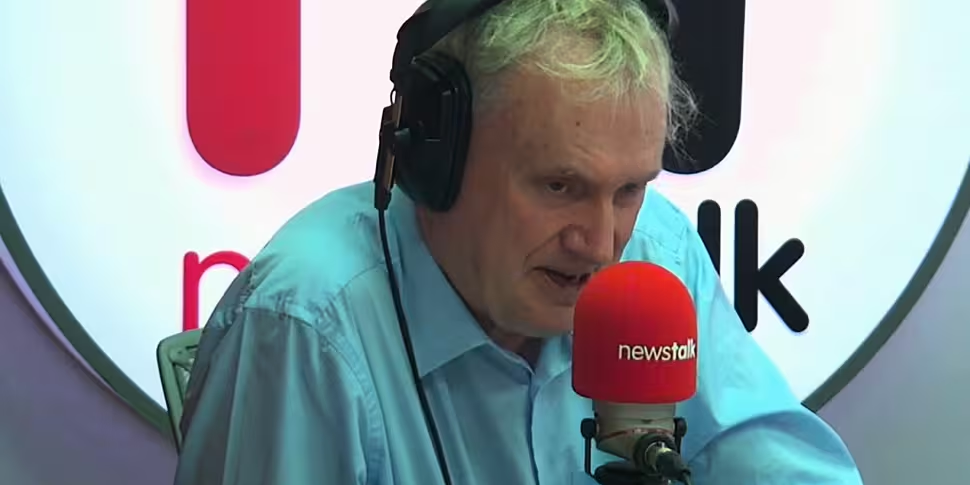Professor Luke O'Neill says trials are underway to see if mixing COVID-19 vaccines could mean the immune system experiences 'the best of both worlds'.
He says people receiving a different vaccine for their second dose could 'really wake up' the immune system.
So far, people have been receiving two doses of the same vaccine - if a first dose is the Pfizer vaccine, then the second one will be as well.
However, Professor O'Neill - Professor of Biochemistry at Trinity College - told The Pat Kenny Show trials are now underway to see whether the available vaccines could be combined to be more effective.
He said: "AstraZeneca are leading this… they’re trying a trial with AstraZeneca first, followed by Pfizer. They’re also trying one with AstraZeneca, followed by [Russian vaccine] Sputnik-V.
“You need around 1,000 people in these trials. They’re even doing trials where they compare the gaps between the boosts…. There’s a lot of science going on.
"This will take a while, but it does mean - I predict - they’re eventually going to get to a point in the next 3, 6, 9 months where they’ve got the best ever combination. You’d predict it would work against variants."
He explained that different vaccines trigger different responses in the immune system.
He said: “We know the AstraZeneca vaccine is better at bringing out t-cells, whereas Pfizer is better at antibodies.
"In other words, you’re getting the best of both worlds.
“Sometimes the first shot, and if you give the exact same shot the second time… you’ve been slightly desensitised and you get slightly less of an effect. If you give a different vaccine second time around, you really wake up the system."
In terms of the Russian vaccine Sputnik-V, data released in recent days has shown it appears to have a high efficacy.
Professor O'Neill said: “We knew it was probably going to be OK - it was a reasonable institute where the work was done. It's using quite an old-fashioned technology… there’s quite a bit of overlap with the Johnson & Johnson vaccine.
“They launched it before the phase three [trial]… that was a little bit risky, and wouldn’t be allowed in the US for instance.
“But they said let’s go for it… the data came out, and they were vindicated.”
Treatments
Meanwhile, Professor O'Neill says work on COVID-19 treatments is still extremely important as 'vaccines aren't 100% foolproof'.
He explained: "There can be vaccine failures for various reasons.
"Remember you’re not protected for several days after you’ve been vaccinated, and you need the second shot… and some people can’t take the vaccine for various medical treatments.
“It’s like having a flame retardants in your house, but you still have a fire brigade just in case."
He noted that the research into COVID-19 treatments means scientists could also discover how to treat other conditions as well.
Professor O'Neill said studies estimate that the drug dexamethasone is helping one in eight people with the virus, and may have saved half a million lives so far.
He said: “It’s a simple drug, cheap as chips… that’s given rise to another very simple drug called aspirin, which you’re very familiar with.
"That will stop the blood clotting, and we know clotting is a big dangerous thing."
Heparin, used widely as anticoagulant, could also play a role in the treatment of COVID-19 patients.
Professor O'Neill said these often 'old-fashioned' medicines could play a major role, as well as the practical ways doctors and nurses treat patients in hospital well.
He said: “The big one is how they handle oxygen, instead of putting people on ventilators - that’s got a bit better. Fluid managements got better as well. Even the simple thing of flipping someone over onto their tummy has a big effect.
“I can see eventually we’ll have a really good treatment regimen for people in hospital who haven’t been vaccinated."









